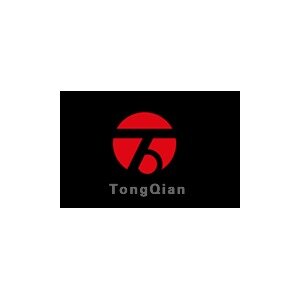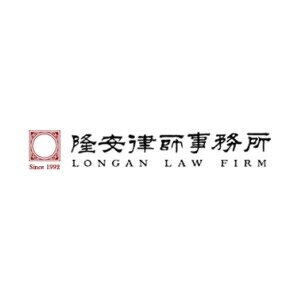Best Nonprofit & Charitable Organizations Lawyers in China
Share your needs with us, get contacted by law firms.
Free. Takes 2 min.
Or refine your search by selecting a city:
List of the best lawyers in China
About Nonprofit & Charitable Organizations Law in China
Nonprofit and charitable organizations in China play a vital role in addressing social needs and contributing to community welfare. These organizations are governed by laws that ensure they operate transparently, comply with governmental regulations, and serve the public interest. China's legal framework for nonprofits includes provisions for registration, taxation, fundraising activities, and governance. Key laws include the Charity Law, the Law on Administration of Activities of Overseas Non-Governmental Organizations within the Territory of China, and regulations for social organizations and foundations. The landscape is heavily regulated to ensure compliance with state policies and the public welfare focus.
Why You May Need a Lawyer
Legal assistance can be crucial across various stages in the lifecycle of a nonprofit or charitable organization. Common situations where legal advice is necessary include:
- Establishing a new nonprofit or charitable entity, where understanding the registration process and compliance with statutory requirements is critical.
- Navigating complex tax regulations and obtaining favorable tax status.
- Drafting and reviewing contracts to avoid potential legal pitfalls.
- Managing disputes related to governance, partnerships, funding, or compliance.
- Ensuring adherence to local and national fundraising laws and guidelines.
- Handling legal matters arising from operational and administrative activities.
Local Laws Overview
The legal environment for nonprofit and charitable organizations in China is comprehensive and multifaceted. The primary legal areas to be aware of include:
- Registration and Recognition: Nonprofits must register with the Ministry of Civil Affairs or appropriate local authorities. Different types of organizations, such as social organizations, civil non-enterprise institutions, and foundations, have specific registration requirements.
- Taxation: Nonprofit organizations may qualify for tax-exempt status, but this requires precise compliance with regulations. Tax benefits for donors are also a consideration.
- Fundraising and Donations: Stringent regulations govern public fundraising activities to prevent fraud and protect donors.
- Overseas NGO Activities: Overseas nonprofit organizations must adhere to specific requirements to operate or fundraise within China.
- Governance: Legal provisions demand rigorous internal governance systems, including the formation of a board of directors and regular reporting to the authorities.
- Supervision and Compliance: Continuous oversight by governmental bodies to ensure legal compliance and accountability in operations.
Frequently Asked Questions
What is required to establish a nonprofit organization in China?
To establish a nonprofit, you must register with relevant government agencies, develop a constitution, appoint directors, and comply with both local and national regulations.
Are there different types of nonprofit organizations in China?
Yes, nonprofits in China fall into several categories, including social organizations, civil non-enterprise units, and foundations, each with specific rules and requirements.
How can a nonprofit organization obtain tax-exempt status?
Nonprofits can apply for tax-exempt status by adhering to guidelines set by the Ministry of Finance and submitting necessary documentation proving non-profit activities and social welfare contributions.
What are the regulations regarding foreign donations?
Foreign donations are permissible but must be reported to Chinese authorities. The use of such funds is subject to scrutiny to ensure alignment with national interests.
Are there restrictions on fundraising activities?
Yes, nonprofit organizations must obtain specific permits for public fundraising and disclose fundraising activities to maintain transparency and accountability.
What governance structure is required for nonprofits?
Nonprofits must have a structured governance model, typically involving a board of directors responsible for overseeing operations, finances, and compliance with legal requirements.
Can international NGOs establish offices in China?
International NGOs can set up representative offices or conduct temporary activities in China, but they must comply with strict regulations outlined by the law on the administration of overseas NGOs.
How does China ensure compliance among nonprofit organizations?
Regular inspections, mandatory reporting, and adherence to auditing requirements facilitate compliance. Non-compliance can result in penalties, including fines and deregistration.
What are the typical legal challenges faced by nonprofits in China?
Challenges include navigating complex regulatory environments, ensuring regulatory compliance, resolving internal governance issues, and handling disputes related to funding and operations.
Is legal support necessary for nonprofit mergers or collaborations?
Yes, engaging legal experts is crucial for navigating the strategic, financial, and legal complexities of mergers or collaborations to ensure compliance and alignment with mission objectives.
Additional Resources
Consider consulting with the following resources for more information on nonprofit and charitable organizations in China:
- Ministry of Civil Affairs - Oversees registration and compliance for nonprofits.
- State Administration of Taxation - Provides guidelines on tax exemptions and benefits.
- China Charity and Donation Information Center - Offers insights and updates on charity laws and practices.
- Local legal aid organizations specializing in nonprofit laws and regulations.
Next Steps
If you require legal assistance for matters concerning nonprofits or charitable organizations in China, consider the following steps:
- Identify Your Needs: Clearly articulate your legal needs, whether for setting up an organization, managing compliance, or resolving a dispute.
- Consult with Experts: Seek advice from legal professionals or firms specializing in nonprofit law to gain tailored insights and support.
- Gather Documentation: Prepare all necessary documentation, such as registration papers, governance details, and financial records, for legal review.
- Engage Local Authorities: Maintain open communication with governmental agencies to stay informed about any changes in regulations or compliance requirements.
- Plan Strategically: Develop a legal strategy that aligns with your organization’s mission and objectives while ensuring full compliance with Chinese laws.
- Avail Pro bono Services: Explore pro bono legal services offered by firms or institutions that support nonprofit initiatives.
Lawzana helps you find the best lawyers and law firms in China through a curated and pre-screened list of qualified legal professionals. Our platform offers rankings and detailed profiles of attorneys and law firms, allowing you to compare based on practice areas, including Nonprofit & Charitable Organizations, experience, and client feedback.
Each profile includes a description of the firm's areas of practice, client reviews, team members and partners, year of establishment, spoken languages, office locations, contact information, social media presence, and any published articles or resources. Most firms on our platform speak English and are experienced in both local and international legal matters.
Get a quote from top-rated law firms in China — quickly, securely, and without unnecessary hassle.
Disclaimer:
The information provided on this page is for general informational purposes only and does not constitute legal advice. While we strive to ensure the accuracy and relevance of the content, legal information may change over time, and interpretations of the law can vary. You should always consult with a qualified legal professional for advice specific to your situation.
We disclaim all liability for actions taken or not taken based on the content of this page. If you believe any information is incorrect or outdated, please contact us, and we will review and update it where appropriate.
Browse nonprofit & charitable organizations law firms by city in China
Refine your search by selecting a city.















